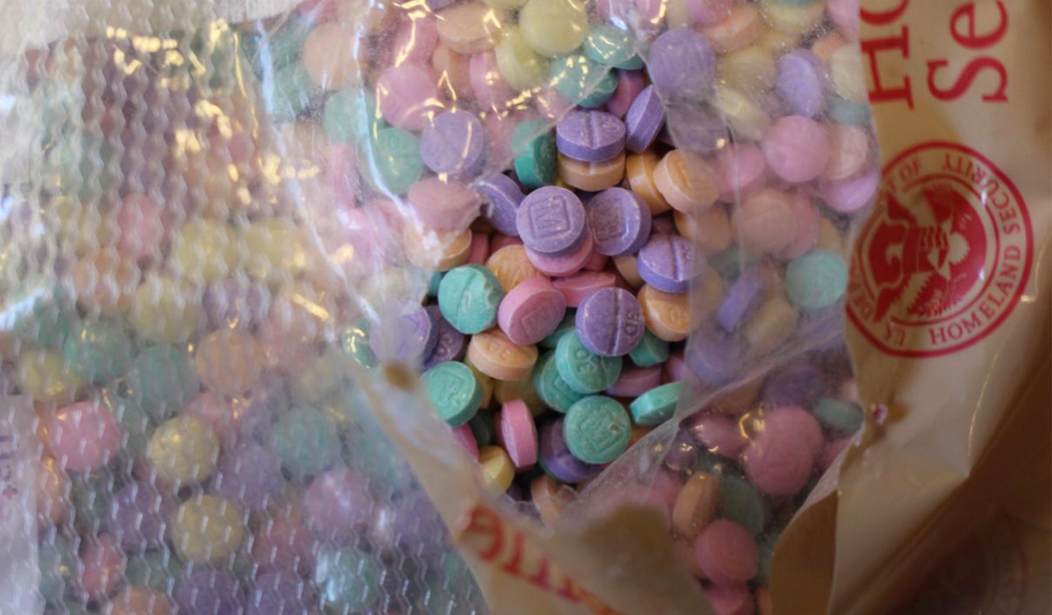Native tribes are among those whose lands and people are suffering from the Biden border crisis, particularly from the criminal plague of Mexican drug cartels.
A U.S. House Committee on Natural Resources subcommittee held a hearing April 10 titled “Biden’s Border Crisis: Examining the Impacts of International Cartels Targeting Indian Country.” At the hearing, representatives of the Fort Peck Tribes, the Fort Belknap Indian Community, and the Tohono O’odham Nation appealed to Congress as their communities are inflicted with criminal activity. Jessica M. Vaughan, director of policy studies for the Center for Immigration Studies (CIS), was the fourth witness at the hearing, and she wrote a piece highlighting key points of the hearing about illegal migration and drug/sex trafficking impacting Indian country.
Representatives of two tribes in Montana and one from Arizona implored Congress and federal agencies to prioritize the well-being of the citizens in Indian Country by securing the border and providing resources to help them eradicate the cartels. Said Jeffrey Stiffarm, president of the Fort Belknap Indian Community: “It seems like [the feds] are more concerned about the immigrants coming across the border than concerned about what they’re doing here once they get here ... and to me more importantly, the first people of this country they’re coming into."
The Sinaloa cartel has been especially problematic in their expansion efforts in northern Montana, Vaughan wrote, affecting multiple reservations. Unfortunately, the cartels can make hefty profits in such areas; whereas the price of fentanyl pills might be around $3 or $5 in an urban area, the reservation lands of Montana can offer opportunities to sell the pills for up to $100.
The relative lack of law enforcement, geographical remoteness, and jurisdictional tensions between the feds and tribal police also entice cartels. A major issue, according to the tribal leaders, is that tribal police don’t usually have jurisdiction over individuals who aren’t members of the tribe, and federal agencies such as ICE, the FBI, or Border Patrol are usually unavailable.
According to tribal leaders, the cartel operatives can “blend in” to the native communities, and in some cases have “married in” to become embedded in the reservation community and to facilitate the recruitment of street-level dealers, who are often local people who become vulnerable to cartel control through addiction and substance abuse. The tribes have experienced a spike in sex trafficking, child abuse and neglect, domestic violence, and theft that they attribute to the burgeoning drug addiction problem fostered by the cartel. The week before the hearing, two residents of the Rocky Boy’s reservation were killed in what was described as a cartel hit.
Tohono O’odham Nation Chairman Verlon Jose mourned “the feds don’t follow their own mandates” to enforce federal laws, including immigration laws. His tribe is in my native state of Arizona, an epicenter of the southern border crisis now. Vaughan wrote that Jose said the Tohono O’odhom “spends half of its law enforcement budget on border-related crime, including investigating everything from the deaths of crossers to stolen property.” Illegal alien crossings in Arizona have been climbing at alarming rates.
Related: Migrants Committed the Majority of Serious Crimes in This German City
Biden administration policies have devastated border security, both at the northern and southern borders and within our country as well. Not only that, but, according to Vaughan, they have “enabled foreign drug cartels to expand drug-distribution networks, devastating American communities in the process. This, together with the lucrative human-smuggling and trafficking business, has not only enriched foreign drug cartels to an unprecedented level, but apparently has now emboldened them to import their tactics of intimidation of political leaders to create a safe environment in which to operate.”
As Vaughan and the tribal leaders emphasized, this criminal activity threatens our society and survival here in America. The federal government needs to take action to address the drug cartel and border crises, instead of helping to fuel the problems.










Join the conversation as a VIP Member